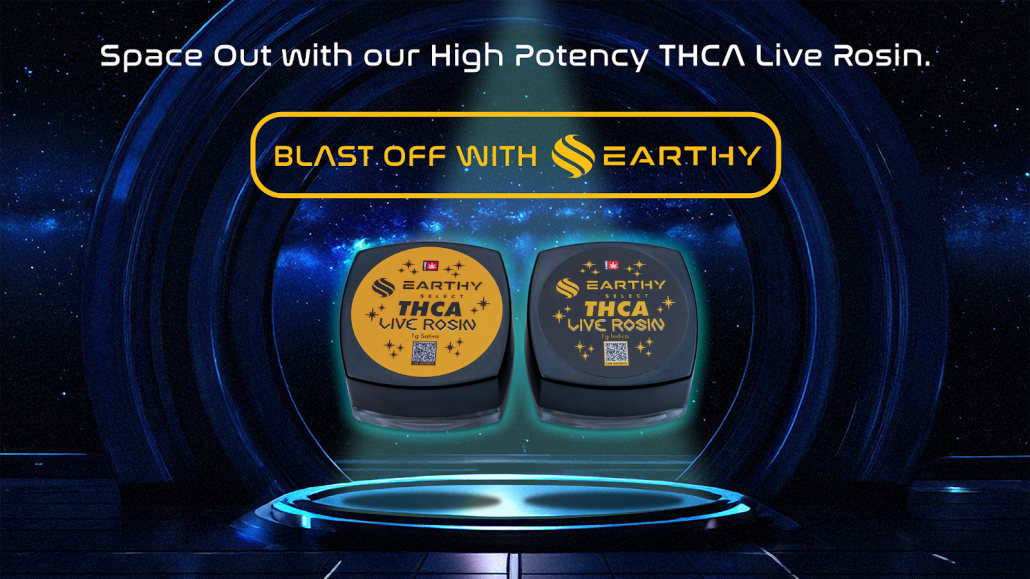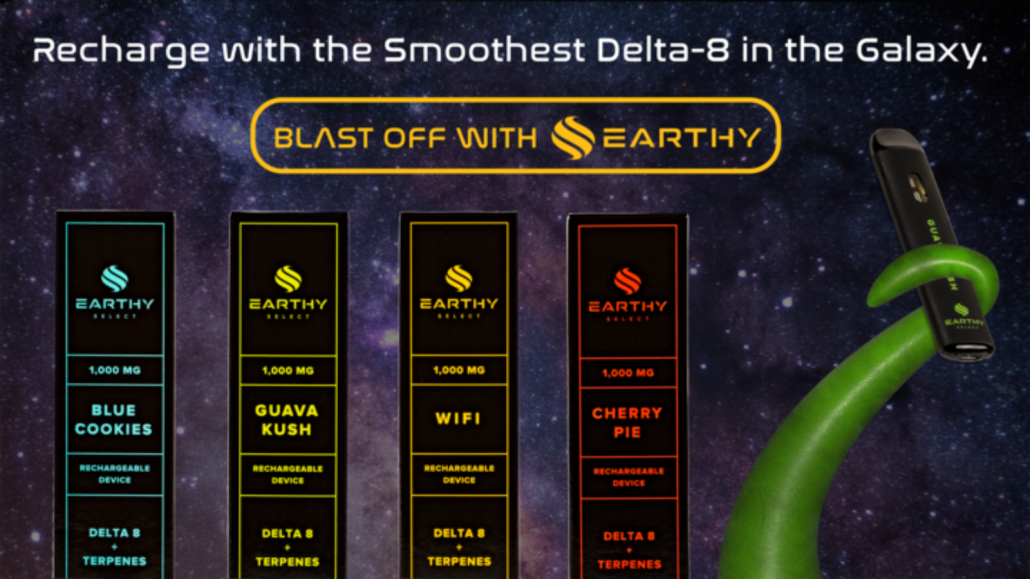Does THCa Show Up on a Drug Test?
Key Takeaways:
- Will THCa Show Up on a Drug Test: Raw THCa typically isn’t detected by standard tests, but once it’s heated and converted into THC, it can lead to a positive result.
- What Affects Detection Time: Factors like how often you use THCa, your metabolism, and your body fat percentage can all influence how long it stays in your system.
- How THCa Is Processed: THCa interacts with the body differently than THC, and knowing the legal and biological differences can help you make informed choices about cannabis use and drug testing risks.
Preparing for a new job or routine screening can raise big questions, especially if you’ve explored cannabinoids like THCa. As more people turn to hemp-derived THC for wellness and flavor-forward experiences, many want to know whether THCa shows up on a drug test.
At Earthy Select, we’re driven not just by the thrill of discovery but by the joy of sharing what we’ve learned with you. Consider this your guide through the intriguing intersection of cannabis science and everyday practicality. Our mission, from the rolling hills of Asheville to wherever you are, is all about empowering you with knowledge. We craft federally compliant THC products that excite the senses, fuel curiosity, and align with your wellness goals. With that being said, let’s get started.
How THCa and THC Work Differently in the Body
THCa and THC may come from the same plant, but they interact with the body in very different ways. THCa, short for tetrahydrocannabinolic acid, is found in raw, unheated cannabis. It’s a cannabinoid with a large molecular structure that doesn’t fit into the brain’s CB1 receptors. THC, in contrast, binds to those receptors and sparks the psychoactive effects most cannabis users recognize.
This structural distinction matters. THCa contains an extra carboxyl group that acts like a molecular block. Because of that difference, THCa won’t produce a “high” unless it transforms into THC. That makes it an appealing choice for people who want to enjoy the plant’s natural flavor, aroma, or potential anti-inflammatory properties without altering their mental state.
How THCa Turns Into THC
Heat is the key that unlocks THC’s signature effects. When cannabis is smoked, vaped, or cooked into edibles, a chemical reaction called decarboxylation kicks in. This process removes the carboxyl group from THCa and converts it into Delta-9 THC. However, take note that decarboxylation doesn’t always require direct flame or an oven. Exposure to high temperatures from sunlight or a hot car can also trigger the change.
That’s why storing Earthy Select’s THCa flower or diamonds properly is essential to maintain their original composition. Decarboxylation transforms the product’s experience, shifting it from calm and grounded to energizing or euphoric, depending on strain and dosage. That transformation is something to consider if you’re seeking flavor-forward, federally compliant THCa products with predictable effects.
What This Means for Drug Testing
Most standard drug tests are designed to detect THC metabolites like THC-COOH, the byproducts formed after Delta-9 THC is broken down in the liver. Raw THCa typically bypasses this pathway, so using unheated products may reduce the likelihood of detection. Smoking, vaping, or baking with THCa transforms it into Delta-9 THC, which the body then processes into those same detectable metabolites. That means even if you’re turning to THCa to ease tension, consuming it in heated forms could still trigger a positive result. For anyone navigating job applications or routine screenings, this distinction is key.
Factors Affecting THCa Detection Times
Navigating the intricacies of drug testing can often feel like solving a puzzle, especially when it comes to THCa. Much boils down to how THCa metabolizes and how long it lingers in your body. Several personal and external factors can influence this process, and understanding these can be key to making the right choice:
- Metabolism Rate: Every individual processes cannabinoids at a different speed. THCa might not stick around for long if you have a speedy metabolism. Conversely, a slower metabolism might mean a longer detection window.
- Frequency of Use: Occasional users usually clear THCa quickly from their system. However, regular users might find that THCa accumulates in fat cells, leading to prolonged detection times.
- Body Composition: Fat cells and body fat percentage can play a significant role. THCa is lipophilic, meaning it binds to fat. Therefore, people with more body fat might experience extended detection times compared to those with leaner physiques.
- Dosage and Potency: The strength and amount of THCa consumed will naturally affect how long it stays detectable. Consuming high-potency products or larger doses can lead to longer detection times.
- Hydration and Diet: Staying well-hydrated might aid in metabolizing and excreting cannabinoids more efficiently. Additionally, certain foods can influence metabolic rates, potentially affecting how quickly THCa is processed.
- Type of Drug Test: Some drug tests are more sensitive than others. Urine tests are the most common and may detect THCa days after use, while hair tests might find traces of cannabinoids weeks later.
How the Body Metabolizes THCa
Once THCa enters your system, it doesn’t follow a single, predictable route. Instead, different parts of your body interact with it in their own way – sometimes breaking it down, sometimes storing it, and sometimes doing almost nothing. That’s part of what makes THCa unique, and why its presence in the body can be harder to trace than THC.
The Digestive Tract: Absorption Starts Here
If you consume THCa orally – say, as raw flower, capsules, or cold-pressed tinctures – your digestive system is the first stop. Absorption begins in the stomach and intestines, where the acidic environment might start to alter the molecule slightly, although complete decarboxylation doesn’t happen without heat.
Some THCa passes through unchanged. Some may be partially converted to THC depending on factors like stomach acid strength, timing of meals, and enzyme activity. This partial conversion is still being studied, but early research shows it varies person to person.
The Liver: Where Cannabinoids Are Processed
Any THCa or THC that makes it past digestion travels to the liver. This is where central metabolism takes place for most cannabinoids. The liver contains enzymes like CYP2C9 and CYP3A4, which help transform THC into other compounds like 11-Hydroxy-THC or THC-COOH. THCa, though, doesn’t always get processed the same way. Because it’s a larger molecule with a carboxyl group still attached, THCa may not be broken down into traditional metabolites as easily.
Fat Cells: A Place for Storage, Not Transformation
THCa is lipophilic, meaning it has an affinity for fat. Once in your bloodstream, it can settle into fat tissue and hang around for a while. Unlike the liver or stomach, fat cells don’t break down cannabinoids–they store them. This doesn’t trigger a drug test, but stored compounds can be slowly released back into circulation over time. Therefore, if you’re using THCa routinely, this slow, steady release could explain longer detection windows, even if you’ve stopped for a few days.
The Endocannabinoid System: Limited Interaction
Unlike THC, THCa doesn’t strongly bind to CB1 receptors in the brain. Instead, it has a weak affinity for CB2 receptors in the immune system, gut, and peripheral tissues. This means THCa, before it is converted into Delta-9 THC, might have localized effects, like reducing inflammation or easing digestive discomfort, without producing the kind of heady psychoactive response people associate with THC. Since these interactions happen away from the liver and don’t produce the same metabolites, they’re less likely to be flagged in a test.
Types of Drug Tests and Their Sensitivity to THCa
Figuring out how drug tests respond to THCa can feel a little confusing at first, especially since most weren’t built to spot this cannabinoid in the first place. Let’s break down the different test types so you can see where THCa may or may not show up.
Urine Tests
Urine tests are the most common type of drug test because they’re affordable and simple to use. These tests don’t check for THCa itself—they look for THC-COOH, a substance your body makes after breaking down THC. But here’s the catch: if you smoke, vape, or bake THCa, it turns into THC through heat. Once that happens, your body processes it just like regular THC, and it will show up on a drug test. So if you’re using THCa in a way that involves heat, you should expect it to trigger a positive result.
Blood Tests
Blood tests are more invasive but can give a clear picture of recent cannabis use. They’re especially good at spotting active THC in your system shortly after you’ve used it. But just like urine tests, blood tests aren’t designed to detect THCa in its raw form. That said, if you smoke, vape, or cook with THCa, the heat turns it into THC—and that will show up in a blood test.
Saliva Tests
Saliva tests are being used more often, especially on the roadside or in workplaces where fast results are important. These tests mainly detect Delta-9 THC, not THCa in its raw form. But if you smoke, vape, or heat THCa in any way, it turns into THC—and that can show up on a saliva test.
Hair Tests
Hair tests have the longest detection window—sometimes picking up THC use from weeks or even months ago. These tests look for THC that’s been stored in your hair over time. While they don’t specifically search for THCa, if you’ve been using heated products like smoked flower or vapes, the THCa gets converted into THC, and that THC can show up in a hair test.
Legal Status of THCa vs. THC
The legal landscape around cannabinoids can get confusing fast, especially when you’re trying to make sense of where THCa fits in. While THC’s status is fairly well known, THCa occupies a more complicated space that continues to evolve.
THCa: Technically Legal
THCa is the raw, non-psychoactive form of THC. It doesn’t produce a high on its own, which makes a big difference in how it’s treated under U.S. law. As long as a product contains less than 0.3% Delta-9 THC by dry weight, it’s hemp-derived under the 2018 Farm Bill. That’s the federal loophole that allows THCa to be sold legally across most states, at least for now.
But here’s where it gets tricky: once THCa is heated and decarboxylated into THC, its psychoactive nature is unlocked. Some state regulators are catching on and adjusting their laws to address not just THC content as sold, but also potential THC yield after decarboxylation. So even if a THCa flower looks compliant on paper, certain jurisdictions may still treat it as a controlled substance once converted.
THC: Federally Prohibited, State-by-State Patchwork
THC, or Delta-9 tetrahydrocannabinol, is still considered a Schedule I substance at the federal level. That puts it in the same legal category as heroin and LSD, a classification that doesn’t accurately reflect emerging medical studies. At the state level, though, the story changes. More than half of U.S. states now allow either medical or recreational cannabis use, each with its own rules around possession, cultivation, and retail access. These laws often contradict federal policy, creating a fragmented legal landscape where THC may be entirely legal in one place and strictly prohibited in another.
Final Thoughts
Overall, job screenings, drug tests, and shifting laws make navigating THCa a bit treacherous, and while raw THCa isn’t typically flagged in standard tests, the way you use it can influence what shows up later. That’s why we believe the best cannabis experiences start with clear information.
At Earthy Select, we don’t just care about creating high-potency, compliant products – we’re here to help you make wise, confident choices about what and how you consume them. Whether you’re exploring THCa for its gentler effects or looking for a flavorful, non-psychoactive option that fits your routine, staying informed puts the power in your hands.
Read more:
Frequently Asked Questions About THCa and Drug Testing
Can consuming raw cannabis lead to a positive drug test for THCa?
Yes, consuming raw cannabis can lead to a positive drug test for THCa. While THCa in its raw form isn’t psychoactive, it can still be detected in drug tests that look for cannabis metabolites. Most standard drug tests are designed to detect THC and its byproducts, and they might not differentiate between different forms of THC, including THCa.
How long does THCa stay in the body?
The length of time THCa remains detectable in the body varies depending on factors such as metabolism, frequency of use, and body composition. Generally, THCa, after it’s heated and converted to Delta-9 THC, can be detected in urine for up to 30 days in regular consumers. Occasionally, it might clear out within a few days to weeks. Always remember, the unique chemistry of your body influences the cannabinoid lifecycle.
Can you fail a drug test from secondhand exposure to THCa?
Failing a drug test from secondhand exposure to THCa (after it’s heated and converted to Delta-9 THC) is unlikely but not impossible. For it to register on a drug test, the exposure would need to be substantial and repeated. Most drug tests have thresholds to distinguish between active use and passive exposure, so incidental exposure typically won’t trigger a positive result.
What should I know about THCa in full-spectrum CBD products and drug tests?
Full-spectrum CBD products can contain trace amounts of THCa. While these amounts are typically too low to cause intoxication, they might still be detectable in a drug test. If you are subject to regular drug testing, consider this factor when choosing your wellness products, and possibly opt for products labeled as “THC-free.”
How do metabolism and body fat influence THCa detection?
Metabolism plays a crucial role in how quickly THCa is processed and eliminated. A faster metabolism may clear THCa more quickly. Additionally, THC compounds, including THCa, are stored in body fat. Individuals with higher body fat percentages might retain these compounds longer, leading to extended detection times.
Can detox products help remove THCa from the body for drug tests?
Detox products often claim to aid in the removal of THC and its derivatives, like THCa. However, their effectiveness can vary widely. While some might help temporarily mask THC metabolites, they don’t necessarily expedite the actual metabolic process. The most reliable way to clear THCa from your system is by using time and hydration.
What happens if I have a prescription for medical cannabis with THCa?
Having a prescription for medical cannabis containing THCa can be a defense in environments where cannabis is accepted for medical use. However, legal protections can vary by state and employer policies. If you’re using prescribed THCa products, it’s wise to discuss this with your employer or the relevant authority before a drug test.
Are there any states where THCa is legal but might still show up on drug tests?
Yes, several states allow the legal use of THCa under certain conditions, yet it can still be flagged during a drug test. Legal status doesn’t necessarily affect drug testing policies; employers might still screen for all THC derivatives regardless of legality. Always understand both state laws and workplace rules when using THCa products.
Medical Disclaimer / Legal Disclaimer – Information is provided for educational purposes only. It does not, and is not intended to, constitute legal advice or medical advice. We strive to be accurate and up-to-date, but the legality of cannabinoids and the science of cannabis are continually evolving. The author is neither a legal professional nor a medical expert. Before buying or using any products, you should consult with your local authorities and medical providers.
Sources:
- American Addiction Centers. (n.d.). How long does marijuana stay in your system? American Addiction Centers. Retrieved April 25, 2025, from https://americanaddictioncenters.org/marijuana-rehab/how-long-system-body
- Rock, E. M., Kopstick, R. L., Limebeer, C. L., & Parker, L. A. (2013). Tetrahydrocannabinolic acid reduces nausea-induced conditioned gaping in rats and vomiting in Suncus murinus. British Journal of Pharmacology, 170(3), 641–648. https://doi.org/10.1111/bph.12316
- National Cannabis Industry Association. (2023, September 26). Where is Delta-8 THC legal and where is it banned? CBD Oracle’s map has the answers. The Cannabis Industry. Retrieved April 25, 2025. https://thecannabisindustry.org/member-blog-where-is-delta-8-thc-legal-and-where-is-it-banned-cbd-oracles-map-has-the-answers






